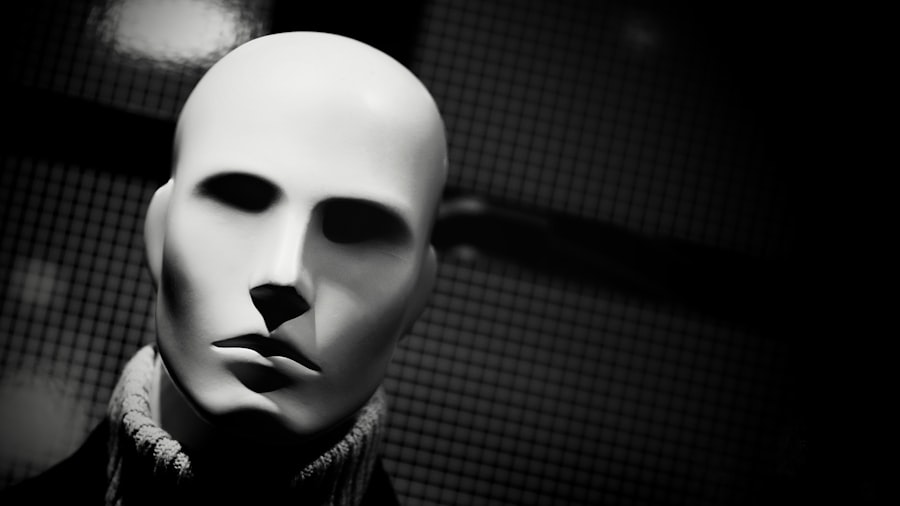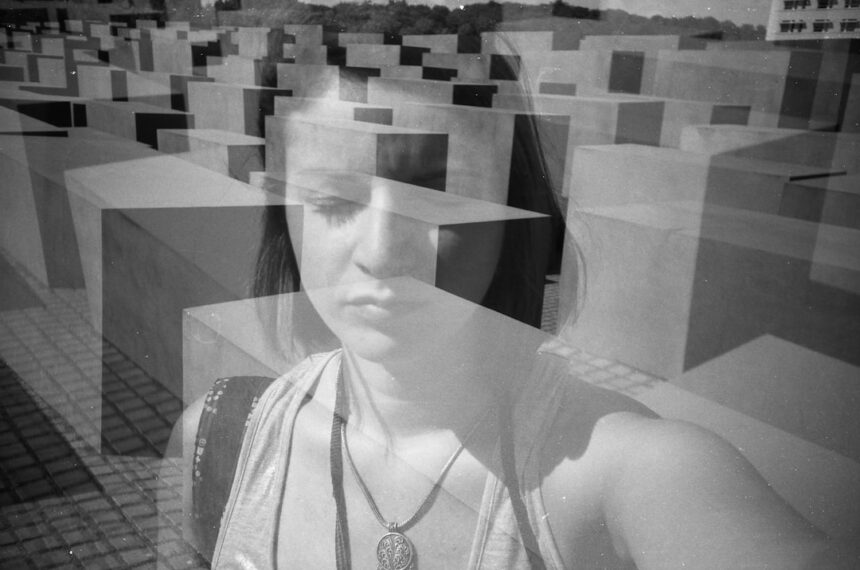Depersonalization and derealization are psychological phenomena that can leave you feeling detached from your own thoughts, feelings, or sense of self. When you experience depersonalization, you may feel as though you are an outside observer of your own life, as if you are watching yourself in a movie. This can lead to a profound sense of disconnection from your identity and emotions.
On the other hand, derealization involves a sense of detachment from your surroundings, making the world around you feel unreal or distorted. You might perceive your environment as dreamlike or foggy, which can be disorienting and frightening.
While they can be temporary and situational, for some individuals, these feelings can become chronic and significantly impact daily functioning. Understanding these phenomena is crucial for recognizing their effects on mental health and seeking appropriate help when needed.
Key Takeaways
- Depersonalization is a mental health condition characterized by feeling detached from oneself, while derealization involves feeling detached from the surrounding environment.
- Symptoms of depersonalization and derealization may include feeling like an outside observer of one’s thoughts or actions, experiencing a sense of unreality, and feeling emotionally numb.
- Causes of depersonalization and derealization may include trauma, stress, anxiety, depression, and substance abuse.
- Diagnosing depersonalization and derealization involves a thorough evaluation of symptoms, medical history, and ruling out other potential causes.
- Depersonalization and derealization can have significant effects on daily life, including difficulty concentrating, impaired social interactions, and increased risk of developing other mental health disorders.
Symptoms of Depersonalization and Derealization
The symptoms of depersonalization and derealization can vary widely from person to person. You might find yourself feeling emotionally numb or disconnected from your body, as if you are merely a spectator in your own life. This can manifest as a lack of control over your actions or a feeling that your thoughts are not your own.
You may also experience a distorted sense of time, where moments seem to stretch or compress in ways that feel unnatural. In terms of derealization, you might notice that familiar places appear strange or unfamiliar, as if they have been altered in some way. Sounds may seem muted or distorted, and colors might appear less vibrant.
These sensations can lead to confusion and anxiety, as you struggle to reconcile your perceptions with reality. It’s important to recognize that these symptoms can be distressing and may lead to further mental health challenges if left unaddressed.
Causes of Depersonalization and Derealization

The causes of depersonalization and derealization are complex and multifaceted. Often, these experiences are linked to significant stressors or traumatic events in your life. For instance, if you have experienced a traumatic incident, such as an accident or abuse, your mind may employ depersonalization as a coping mechanism to protect you from overwhelming emotions.
This dissociative response can help you distance yourself from the pain but may also lead to persistent feelings of detachment. Additionally, anxiety and panic disorders are common precursors to these experiences. When you are under intense stress or facing anxiety-provoking situations, your brain may trigger depersonalization or derealization as a way to manage the overwhelming feelings.
Substance use can also play a role; certain drugs can induce these sensations temporarily, while long-term use may lead to chronic experiences of depersonalization and derealization.
Diagnosing Depersonalization and Derealization
| Metrics | Value |
|---|---|
| Prevalence | 1-2% of the population |
| Age of Onset | Usually in adolescence or early adulthood |
| Duration | Episodes can last for hours, days, or even years |
| Associated Conditions | Anxiety disorders, depression, trauma |
| Treatment | Therapy, medication, self-care strategies |
Diagnosing depersonalization and derealization typically involves a comprehensive evaluation by a mental health professional. During this process, you will likely discuss your symptoms in detail, including their frequency, duration, and any potential triggers. The clinician may also inquire about your medical history and any past trauma or stressors that could contribute to your experiences.
It’s essential for the clinician to differentiate between depersonalization/derealization disorder and other mental health conditions that may present similar symptoms, such as anxiety disorders or post-traumatic stress disorder (PTSD). A thorough assessment will help ensure that you receive an accurate diagnosis and appropriate treatment plan tailored to your specific needs.
Effects of Depersonalization and Derealization on Daily Life
Living with depersonalization and derealization can significantly impact your daily life. You may find it challenging to engage in social situations or maintain relationships due to feelings of disconnection from yourself and others. This detachment can lead to isolation, as you might avoid situations that trigger these sensations or feel unable to connect with those around you.
Moreover, these experiences can interfere with your ability to concentrate and perform tasks effectively. You may struggle with decision-making or feel overwhelmed by everyday responsibilities. The persistent nature of these symptoms can contribute to feelings of frustration and hopelessness, making it essential to seek support and develop coping strategies to manage their effects on your life.
Treatment Options for Depersonalization and Derealization

Treatment for depersonalization and derealization often involves a combination of therapeutic approaches tailored to your individual needs. Cognitive-behavioral therapy (CBT) is one effective method that helps you identify negative thought patterns and develop healthier coping mechanisms. Through CBT, you can learn to challenge distorted perceptions of reality and gradually re-engage with your emotions and surroundings.
In some cases, medication may be prescribed to help alleviate symptoms associated with anxiety or depression that often accompany depersonalization and derealization. Antidepressants or anti-anxiety medications can provide relief for some individuals, but it’s crucial to work closely with a healthcare provider to determine the best course of action for your specific situation.
Coping Strategies for Depersonalization and Derealization
In addition to professional treatment, there are several coping strategies you can employ to manage the symptoms of depersonalization and derealization in your daily life. Mindfulness practices, such as meditation or deep breathing exercises, can help ground you in the present moment and reduce feelings of detachment. By focusing on your breath or engaging in sensory experiences—like feeling the texture of an object or listening intently to sounds around you—you can reconnect with your body and environment.
Establishing a routine can also provide structure and stability in your life, helping you feel more anchored during episodes of depersonalization or derealization.
Additionally, journaling about your experiences can serve as an outlet for processing emotions and tracking patterns in your symptoms over time.
How Depersonalization and Derealization Relate to Mental Health Disorders
Depersonalization and derealization often coexist with various mental health disorders, making it essential to understand their relationship with conditions like anxiety disorders, depression, PTSD, and borderline personality disorder (BPD). For instance, individuals with PTSD may experience dissociative symptoms as a way to cope with traumatic memories. Similarly, those with anxiety disorders may find themselves slipping into depersonalization during panic attacks as a means of escaping overwhelming fear.
Recognizing the interplay between these experiences and mental health disorders is crucial for effective treatment. By addressing the underlying issues contributing to depersonalization and derealization, mental health professionals can help you develop a more comprehensive approach to managing your overall well-being.
Understanding the Difference Between Depersonalization and Derealization
While depersonalization and derealization are often discussed together due to their similarities, it’s important to understand the distinctions between the two experiences. Depersonalization primarily involves a disconnection from oneself—your thoughts, feelings, or sense of identity may feel foreign or unreal. In contrast, derealization pertains to a disconnection from the external world; familiar environments may seem strange or distorted.
Being aware of these differences can aid in recognizing what you are experiencing at any given moment. This understanding can also facilitate more effective communication with mental health professionals when seeking help or discussing symptoms.
Depersonalization and Derealization in Children and Adolescents
Depersonalization and derealization are not limited to adults; children and adolescents can also experience these phenomena. In younger individuals, these feelings may manifest differently than in adults due to their developmental stage. Children might express their experiences through play or art rather than verbalizing their feelings directly.
It’s crucial for parents and caregivers to be attentive to signs of distress in children that could indicate depersonalization or derealization. If a child exhibits unusual behaviors or expresses feelings of disconnection from themselves or their surroundings, seeking professional help is essential for providing appropriate support.
Seeking Help for Depersonalization and Derealization
If you find yourself struggling with depersonalization or derealization, it’s important to remember that help is available. Seeking support from a mental health professional can provide you with the tools needed to navigate these challenging experiences effectively. Whether through therapy, medication, or coping strategies, there are various avenues for finding relief.
You don’t have to face this alone; reaching out for help is a courageous step toward reclaiming your sense of self and reality. By addressing these symptoms early on, you can work towards building a fulfilling life despite the challenges posed by depersonalization and derealization. Remember that recovery is possible, and with the right support system in place, you can regain control over your thoughts and emotions once more.
Depersonalization and derealization are dissociative disorders characterized by a persistent or recurrent feeling of detachment from one’s body or surroundings, as if observing oneself from outside or experiencing the world as unreal. These experiences can be distressing and interfere with daily functioning. For a deeper understanding of these conditions, you can explore an insightful article on the topic at Unplugged Psych, which delves into the nuances of these disorders and offers guidance on coping mechanisms and treatment options.
LEARN MORE About Unmasking the Mysteries Behind Depersonalization and Derealization
FAQs
What is depersonalization and derealization?
Depersonalization is a mental health condition where a person feels detached from their own thoughts, feelings, and body. Derealization is a similar condition where a person feels detached from their surroundings, as if the world around them is unreal.
What are the symptoms of depersonalization and derealization?
Symptoms of depersonalization may include feeling like an outside observer of one’s thoughts or body, feeling like one’s emotions are dulled or distant, and feeling disconnected from one’s own identity. Symptoms of derealization may include feeling like the world is foggy or dreamlike, feeling like objects are distorted or unreal, and feeling like time is passing slowly or quickly.
What causes depersonalization and derealization?
Depersonalization and derealization can be caused by various factors, including trauma, stress, anxiety, depression, substance abuse, and certain neurological conditions. It can also be a symptom of other mental health disorders such as dissociative disorders and post-traumatic stress disorder.
How are depersonalization and derealization treated?
Treatment for depersonalization and derealization may include therapy, medication, and lifestyle changes. Cognitive-behavioral therapy (CBT) and mindfulness-based approaches have been found to be effective in treating these conditions. Medications such as antidepressants and anti-anxiety drugs may also be prescribed in some cases.




